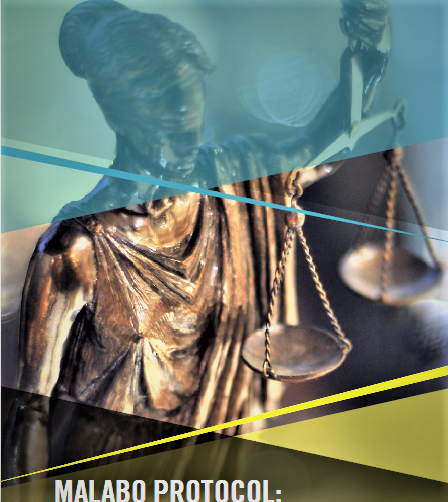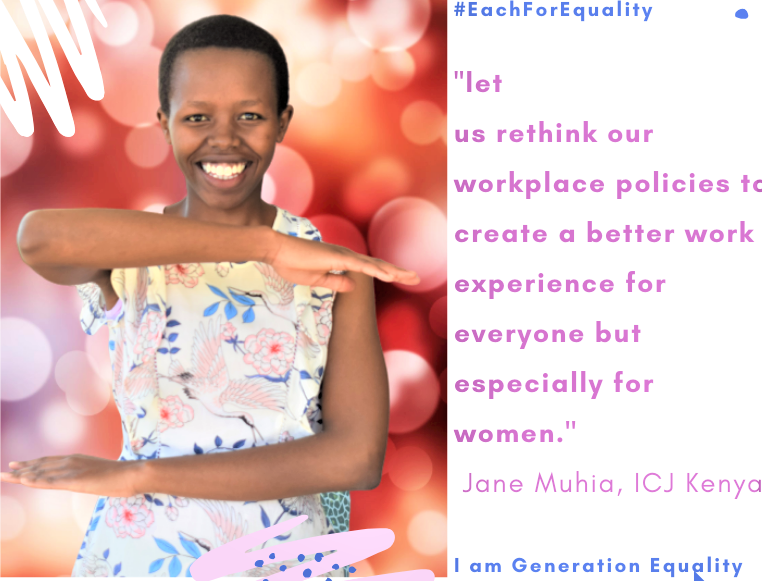Joan Mutonga
Africa has in the last decade experienced an era of popular uprising against repressive regimes resulting to the ouster of Africa’s long serving political leaders. The rising intolerance of regimes characterized by suppression and oppression of the fundamental rights and freedoms of the populace has propelled the growing demand for democracy by civilians. Neither the sounds of the ricocheting guns nor the heavy-handed crackdown of civilian led opposition activists could ever quell Africa’s thirst for change and democracy. As Ernest Harsch simply put it, Africa is saying “no” — and starting to mean it. The Republic of Gambia, the Republic of Sudan, the Republic of Algeria and the Republic of Egypt are few examples of such countries where civilian protests led to the change of governments.
The last decade also experienced an increase in demand for justice for victims of grave crimes with the International Criminal Court (hereafter ICC) opening cases against twenty-five (25) Africans for crimes allegedly committed in six African states. These countries are Libya, Kenya, Sudan, Uganda, the Democratic Republic of Congo and the Central African Republic. Whilst these may be lauded as a success, to some this was viewed as the growing imposition of westerns supremacists’ rule on Africans. Then came the question, Is the ICC targeting Africa inappropriately? From the halls of academic institutions to the corridors of justice and the silent walls of the African Union Summit, everyone had an opinion. In 2017, the African heads of state passed a non-binding resolution calling for mass withdrawal of African States from the ICC. Then came the demand for, “African solutions to African problems,” and the Protocol on Amendments to the Protocol on the Statute of the African Court of Justice and Human Rights (Malabo Protocol) was born.
The Malabo protocol was lauded and criticized in equal measure. The detractors of the Malabo Protocol raised concerns with the controversial crimes within the jurisdiction of the newly established court. One such crime is the crime of unconstitutional change of government[1]. The Malabo Protocol defines the offence of the crime of unconstitutional change of government as the commission or ordering to be committed of a number of specified acts with the aim of illegally accessing or maintaining power[2]. The implication of these provision is the need to protect democratic government and processes in Africa. The question as to whether such protection is fundamental is not in contention, however, the criminal aspects of the offence begs the question as to the effect of this provision on the right to civil resistance.
There is no doubt that there are instances where democratically elected governments have suppressed the right of the civilians and exercised control and authority over institutions/mechanisms created to protect the rights of the populace irrespective of the existence of constitutional and legislative protection. In such instances, the civilians might employ the tactics of forming rebel groups or become armed dissidents to fight against oppressive regimes. One such instance would be the ongoing battle between the Francophone and the Anglophone civilians in the Republic of Cameroon.
The Malabo protocol places a lot of emphasis on democratically elected governments and envisages a situation where there are democratic institutions/mechanisms put in place to address any insufficiencies of the government. These institutions/mechanisms are sufficient to remedy the inadequacies of the government and as such the use of armed dissidents or rebels would be unlawful. In conclusion, Article 28E of the Malabo protocol does not violate the right to civil resistance but limits this right to the use of lawful and non-violent means to demand for protection and promotion of human rights. The Malabo protocol presents the possibility of resisting repressive regimes, and doing so without causing a bloodbath or deeply rooted resentments that inevitably lead to more harm than good.
Written by Joanne Mutonga
Joan Mutonga works as a Programme Officer, International Justice; Human Rights and Justice Programme.
Her main areas of interest are Constitutional Law, Research and Public Interest Litigation.
[1] Article 28E of the Protocol on Amendments to the Protocol on the Statute of the African Court of Justice and Human Rights
[2] Article 28E of the Protocol on Amendments to the Protocol on the Statute of the African Court of Justice and Human Rights
(a) A putsch or coup d’état against a democratically elected government;
(b) An intervention by mercenaries to replace a democratically elected government;
(c) Any replacement of a democratically elected government by the use of armed dissidents or rebels or through political assassination;
(d) Any refusal by an incumbent government to relinquish power to the winning party or candidate after free, fair and regular elections;
(e) Any amendment or revision of the Constitution or legal instruments, which is an infringement on the principles of democratic change of government or is inconsistent with the Constitution; and











